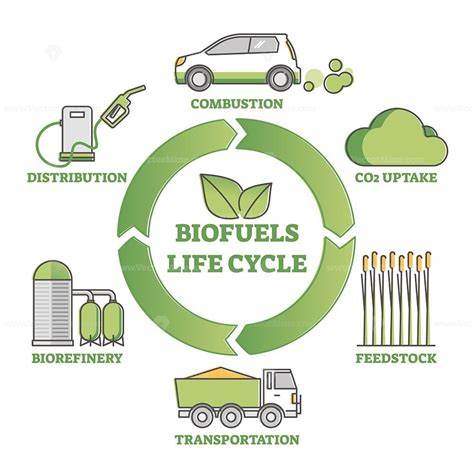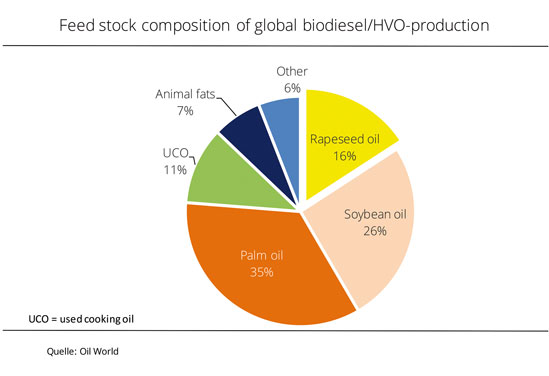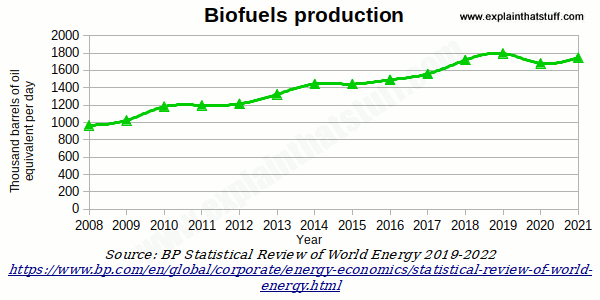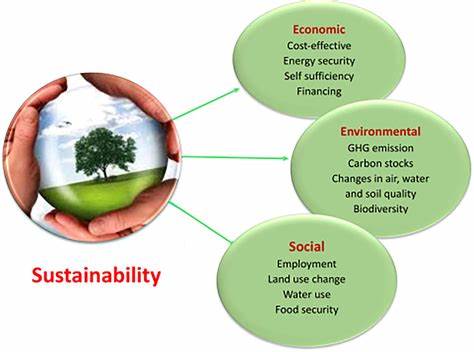
Economic Impacts of Biofuel Production
Introduction
Biofuel production has emerged as a significant player in the global energy landscape, with profound economic impacts. This article delves into the economic implications of biofuel production, highlighting its relevance and importance in today’s world.
Historical Background
The development and growth of biofuel production can be traced back to several decades. Over time, this industry has witnessed significant milestones and events that have shaped its trajectory.
Key Concepts and Definitions
To understand the economic impacts of biofuel production, it is essential to define biofuel and its types, such as biodiesel and ethanol. Additionally, we explore the economic implications of biofuel production processes and the various benefits it offers, including job creation and its contribution to GDP.

Main Discussion Points
Economic Benefits of Biofuel Production
Biofuel production offers a range of economic advantages. Firstly, it contributes to energy security by reducing dependence on fossil fuels. This not only enhances national security but also promotes stability in the energy market. Secondly, the biofuel industry and related sectors generate numerous job opportunities, fostering economic growth and prosperity. Lastly, biofuel production has the potential to drive rural development and provide income generation opportunities in traditionally marginalized areas.
Economic Challenges and Considerations
While biofuel production offers economic benefits, it also presents certain challenges. Competition for land resources is one such concern, as it may lead to increased food prices and affect agricultural productivity. Additionally, the cost-effectiveness and profitability of biofuel production must be carefully evaluated to ensure its long-term sustainability. Government policies and incentives play a crucial role in determining the economic viability of biofuel production.
Environmental and Social Impacts of Biofuel Production on the Economy
Biofuel production has both environmental and social implications for the economy. It contributes to sustainability efforts by reducing greenhouse gas emissions and promoting a cleaner energy mix. However, it also raises concerns about its impact on agricultural sectors and food security. The social and cultural implications of biofuel production should be considered to ensure equitable and inclusive growth.

Case Studies or Examples
Examining specific cases can provide valuable insights into the economic impacts of biofuel production. Case study: focuses on the economic effects of biofuel production in Brazil, a country known for its successful biofuel industry. Case study: explores the economic impacts of biofuel production in the United States, where this sector has experienced significant growth. Additionally, we analyze successful biofuel projects and their economic outcomes worldwide.
Current Trends or Developments
Recent research findings shed light on the economic impacts of biofuel production. We discuss emerging technologies and innovations that are revolutionizing the industry, making it more efficient and cost-effective. Furthermore, we explore market trends and the growing demand for biofuels, driving further advancements.
Challenges or Controversies
Biofuel production is not without its challenges and controversies. Environmental concerns regarding deforestation, land-use change, and biodiversity loss are major points of debate. Conflicting views on the economic viability of biofuel production also exist, questioning its long-term sustainability. Policy debates surrounding biofuel subsidies and regulations add another layer of complexity to the subject.

Future Outlook
The future of biofuel production holds immense potential. Technological advancements can lead to cost reductions and increased efficiency, making biofuel production more economically feasible. Moreover, biofuels can play a vital role in achieving sustainability and climate change goals. With the growing demand for cleaner energy alternatives, the market for biofuels is expected to witness substantial growth, further influencing the economy.
Conclusion
In conclusion, the economic impacts of biofuel production are multifaceted. This article has explored the various benefits, challenges, and future prospects of this industry. Understanding the economic implications of biofuel production is crucial for policymakers, researchers, and individuals alike, as it holds significance in achieving a sustainable and prosperous future.




